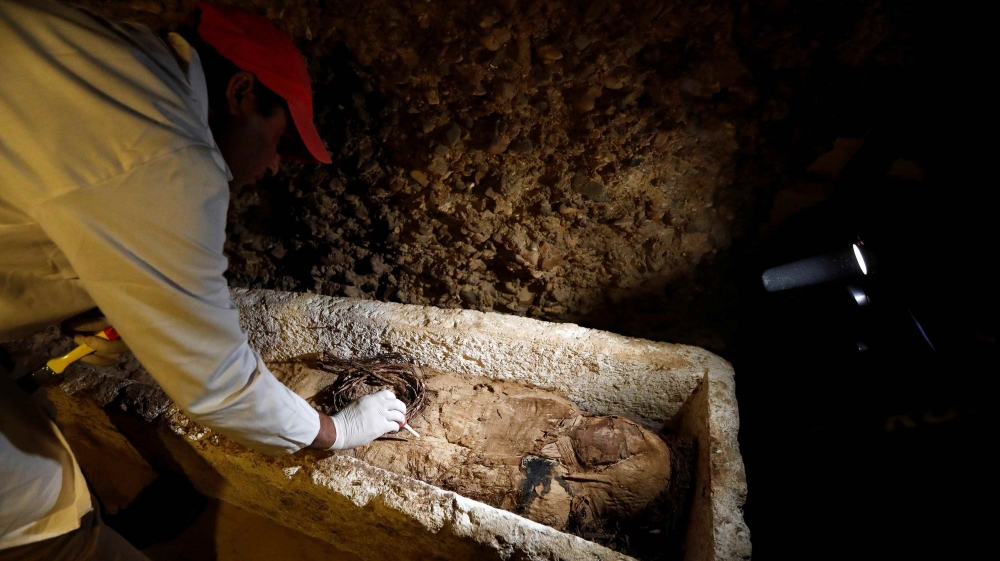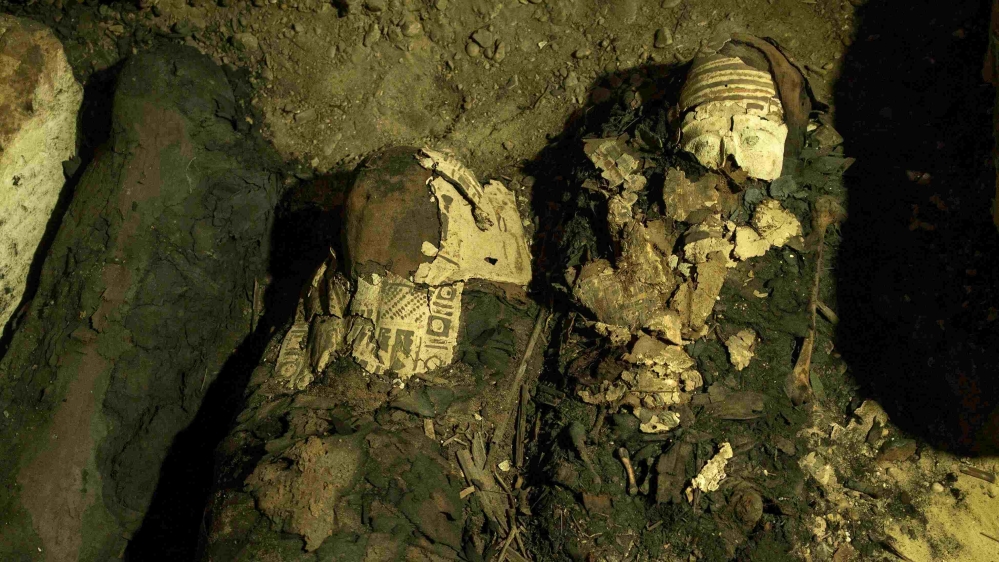
Egyptian archaeologists have uncovered a tomb containing 50 mummies that date back to the Ptolemaic era (323-30BCE).
The mummies, 12 of which were of children, were discovered inside four nine-metre deep burial chambers in the Tuna el-Gebel archaeological site in Minya, south of Cairo, the Supreme Council of Antiquities said on Saturday.
The identities of the mummies – which are said to be in good condition – were still unknown, said Mostafa Waziri, secretary-general of the council.
 |
| An Egyptian archaeologist examines a mummy in a coffin [Amr Abdallah Dalsh/Reuters] |
“We have not found names written in hieroglyphics,” he said, adding it was obvious from the mummification method that the individuals whose remains were found had to some extent held important or prestigious positions.
Officials told reporters at the site that the chambers, which were cut out of rock, belonged to a middle-class family.
Some were decorated with demotic handwriting, a form of ancient Egyptian script used by ordinary people. Pottery, papyri and colourful mummy cases were also unearthed.
 |
| Mummy cases lie in a recently discovered burial chamber in the desert province of Minya [Roger Anis/AP] |
Some of the mummies were found wrapped in linen while others were displayed in their stone coffins or wooden sarcophagi during an announcement ceremony attended by ambassadors and cultural attaches from 11 countries.
This archaeological find was the first of 2019 and was realised through a joint mission with the Research Centre for Archaeological Studies of Minya University.
Egypt has made a series of archaeological finds recently and has been heavily promoting them to revive its tourism industry, a staple of its economy that was decimated by the chaos that followed its 2011 uprising.












